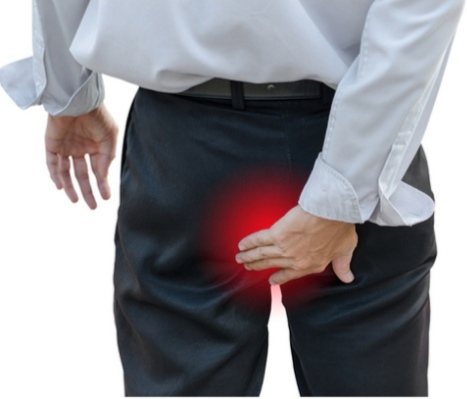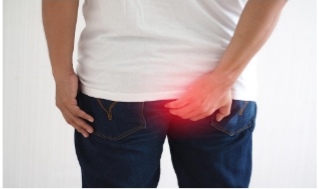Anal itching. Causes and Treatment (1).
3 min read
Anal itching is a common condition. The itch, situated in or around your anus, is often intense and may be accompanied by a strong urge to scratch. You may find anal itching to be embarrassing and uncomfortable. Also called pruritus ani (proo-RIE-tus A-nie), anal itching has many possible causes, such as skin problems, hemorrhoids, and washing too much or not enough. If anal itching is persistent, talk with your doctor. With proper treatment and self-care, most people get complete relief from anal itching.


Symptoms: Anal itching may be associated with redness, burning and soreness. The itching and irritation may be temporary or more persistent, depending on the cause.
When to see a doctor: Most anal itching doesn’t require medical care. See your doctor if: Anal itching is severe or persistent. You have anal bleeding or stool leakage. The anal area seems to be infected. You can’t figure out what’s causing a persistent itch. Persistent anal itching may be related to a skin condition or other health problem that requires medical treatment.
Causes: Sometimes the cause of anal itching isn’t identifiable. Possible causes of anal itching include: Irritants. Fecal incontinence and long-term (chronic) diarrhea can irritate the skin. Or your skin care routine may include products or behaviors that irritate the skin, such as using harsh soaps or moist wipes and washing too aggressively. Infections. These include sexually transmitted infections, pinworms, and yeast infections. Skin conditions. Sometimes anal itching is the result of a specific skin condition, such as psoriasis or contact dermatitis.
Other medical conditions. These include diabetes, thyroid disease, hemorrhoids, anal tumors.
Diagnosis: Your doctor may be able to diagnose the cause of your itching simply by asking you questions about your symptoms, medical history and personal care habits. If pinworms are suspected, your doctor may suggest doing a test for pinworms. You may also need a physical exam, including a digital rectal exam. If the cause of your itching isn’t obvious or it doesn’t respond to initial treatment, your doctor may refer you to a skin specialist (dermatologist). It’s possible the cause of the itching may never be identified.
Treatment: Treatment of anal itching depends on the cause of the problem. It may include taking self-care measures such as nonprescription anti-itch cream or treating an infection or hemorrhoids. If your symptoms are worse at night, an oral antihistamine might help until an anti-itch cream takes effect. With proper care most people experience relief from anal itching. See your doctor if the itching persists.
Lifestyle and home remedies. Prevention of anal itching mainly involves a careful washing routine that keeps the area clean, cool and dry, while avoiding further irritating the skin. If you already have anal itching, try these self-care measures: Cleanse gently. Clean the area around the anus with plain water or mild soap and a soft (nonterry) washcloth once daily. Avoid scrubbing. Pat dry or use a hair dryer set on low. If you have fecal incontinence or diarrhea, clean the area around the anus with moist cotton balls or a squirt bottle of plain water. It may also help to apply a moistened or dry cotton ball to the outside of the anus.
To be continued next week.
Source: Mayo Clinic Family Health Book, 5th Edition.




